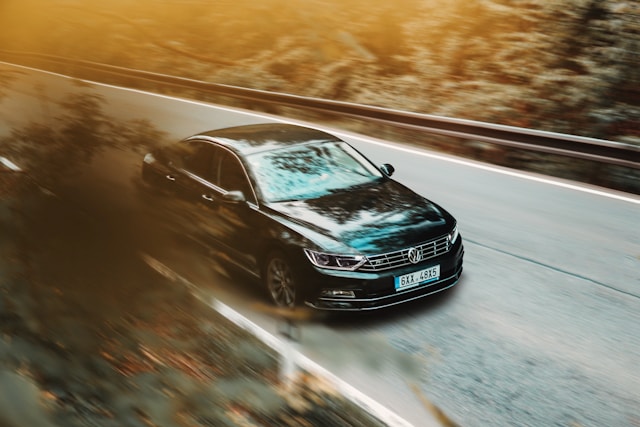Volkswagen, the German car manufacturer, has a storied history in the automotive world. Its brilliant marketing has helped make Volkswagen cars a household name. The brand has managed to maintain its relevance through decades of changing consumer preferences, economic upheavals, and fierce competition. For marketing professionals seeking inspiration, Volkswagen’s strategies offer a wealth of insights. Here, we examine the tactics and campaigns that have kept Volkswagen at the forefront of the automotive industry.
The Power of Iconic Simplicity: “Think Small”
Volkswagen’s “Think Small” campaign, launched in 1959, is perhaps one of the most iconic in advertising history. At a time when bigger was better in the American car market, Volkswagen took a bold approach. They highlighted the small size of the Beetle, turning a perceived disadvantage into a unique selling point.

The campaign was the brainchild of the Doyle Dane Bernbach (DDB) agency. Instead of trying to compete with the gas-guzzling giants of the era, they embraced the Beetle’s quirkiness. The ads featured minimalist design and straightforward copy, focusing on the car’s practicality, fuel efficiency, and affordability. This honesty and simplicity resonated with consumers, making the Beetle a symbol of counterculture and smart consumerism.
For marketing professionals, “Think Small” is a masterclass in differentiation. It shows the power of embracing your product’s unique characteristics and turning them into strengths. This approach not only makes a brand stand out but also builds a loyal customer base that appreciates the brand’s honesty and integrity.
Consistency and Evolution: “Drivers Wanted”
In the 1990s, Volkswagen faced the challenge of updating its image. The “Drivers Wanted” campaign, which started in 1995, aimed to position VW as a brand for people who love to drive. This campaign was pivotal in reviving the brand’s image in the United States.
“Drivers Wanted” was more than a slogan; it was a strategic pivot. The ads featured relatable, everyday scenarios where driving a Volkswagen added a sense of joy and freedom. The message was clear: Volkswagen cars were not just vehicles but companions for life’s journeys.
This campaign’s success lay in its consistency and emotional appeal. It ran for over a decade, creating a strong brand association with driving pleasure. For marketers, the lesson here is the importance of a consistent message that evolves with the brand and continues to resonate with the target audience.
Leveraging Nostalgia: The New Beetle
When Volkswagen reintroduced the Beetle in 1998, they tapped into the nostalgia of the original while modernizing it for a new generation. The marketing campaign for the New Beetle was a brilliant blend of old and new. It celebrated the car’s history while positioning it as trendy and fun for contemporary consumers.
The ads used bright, bold colors and playful taglines like “It’s a smile, in a box.” This approach appealed to both Baby Boomers who had fond memories of the original Beetle and younger buyers looking for something stylish and different.

The New Beetle campaign shows how effective nostalgia can be when combined with modern sensibilities. For marketers, this underscores the potential of revisiting and revamping past successes to create a compelling narrative that bridges generations.
The Environmental Push: “Think Blue”
As environmental concerns grew, Volkswagen launched the “Think Blue” initiative in 2010. This campaign was part of a broader strategy to position Volkswagen as an environmentally responsible brand. “Think Blue” aimed to promote sustainability and environmental awareness through innovative technologies and practices.
The campaign included a mix of traditional and digital media, featuring TV commercials, print ads, and interactive online content. One of the notable aspects was the focus on real-world impact, showcasing Volkswagen’s efforts to reduce emissions and promote fuel efficiency.
“Think Blue” reflects the importance of aligning a brand with broader social values. It shows how brands can lead with purpose and build a reputation for corporate social responsibility. For marketers, this campaign is a reminder of the growing significance of sustainability in brand strategy.
Humor and Creativity: “The Force”
In 2011, Volkswagen released “The Force” commercial during the Super Bowl. The ad featured a young boy dressed as Darth Vader trying to use “The Force” to control objects around his house, only to be amazed when his father uses a remote control to start their Volkswagen Passat.
This commercial became an instant hit, not just for its humor and cuteness but also for its clever product placement. The ad didn’t focus on the car’s features but rather created an emotional connection with the audience through a charming narrative.
“The Force” illustrates the power of creativity and emotional storytelling in advertising. It shows how a memorable, well-crafted ad can create a strong emotional bond with the audience and enhance brand recall. For marketers, this campaign is a testament to the effectiveness of engaging content that connects on a human level.
Digital Innovation: Interactive Campaigns
Volkswagen has also embraced digital innovation to engage consumers. One standout example is the “SmileDrive” app launched in 2013. This app allowed drivers to log their trips, earn “stickers” for achievements, and share their journeys on social media.
“SmileDrive” was a smart way to integrate digital engagement with driving, turning mundane commutes into shareable experiences. This campaign leveraged the growing trend of gamification and social sharing, making driving more interactive and fun.
For marketing professionals, “SmileDrive” demonstrates the potential of integrating technology and digital platforms into campaigns. It highlights the importance of creating interactive and engaging experiences that go beyond traditional advertising.
Rebranding and Reinvention: “Hello Light”
In recent years, Volkswagen has faced challenges, notably the emissions scandal in 2015. In response, the brand has made significant efforts to rebuild its image. The “Hello Light” campaign in 2019 marked a new chapter, focusing on Volkswagen’s commitment to electric vehicles.
The campaign’s centerpiece was a poignant commercial that acknowledged past mistakes and looked forward to a brighter, more sustainable future. It featured the iconic Beetle, transitioning into the new ID. Buzz, an electric vehicle, symbolizing Volkswagen’s shift towards sustainability.
“Hello Light” is a powerful example of rebranding and reinvention. It shows how brands can address past issues transparently and pivot towards a new vision. For marketers, this campaign underscores the importance of authenticity and forward-thinking in brand strategy.
Lessons for Marketers
Volkswagen’s marketing success is built on several key principles that can inspire marketing professionals across industries:
- Embrace Unique Selling Points: Like the “Think Small” campaign, find what makes your product unique and turn it into a strength.
- Consistency and Evolution: Maintain a consistent message that can evolve with your brand, as seen in “Drivers Wanted.”
- Leverage Nostalgia: Use past successes to create a narrative that appeals to both old and new customers, exemplified by the New Beetle.
- Align with Social Values: Align your brand with broader social values and show your commitment through actions, as demonstrated by “Think Blue.”
- Creativity and Emotional Connection: Use humor and emotional storytelling to create memorable ads, like “The Force.”
- Digital Engagement: Integrate technology and digital platforms to create interactive and engaging consumer experiences, shown by “SmileDrive.”
- Rebranding and Reinvention: Be authentic and forward-thinking when addressing past issues and shaping a new vision, as in “Hello Light.”
The Core of Volkswagen’s Marketing Strategy
Volkswagen’s marketing strategies offer a treasure trove of insights for marketing professionals. By embracing simplicity, consistency, nostalgia, social values, creativity, digital innovation, and authenticity, Volkswagen has built a resilient and dynamic brand. These principles can inspire marketers to craft campaigns that resonate deeply with their audiences and stand the test of time.

